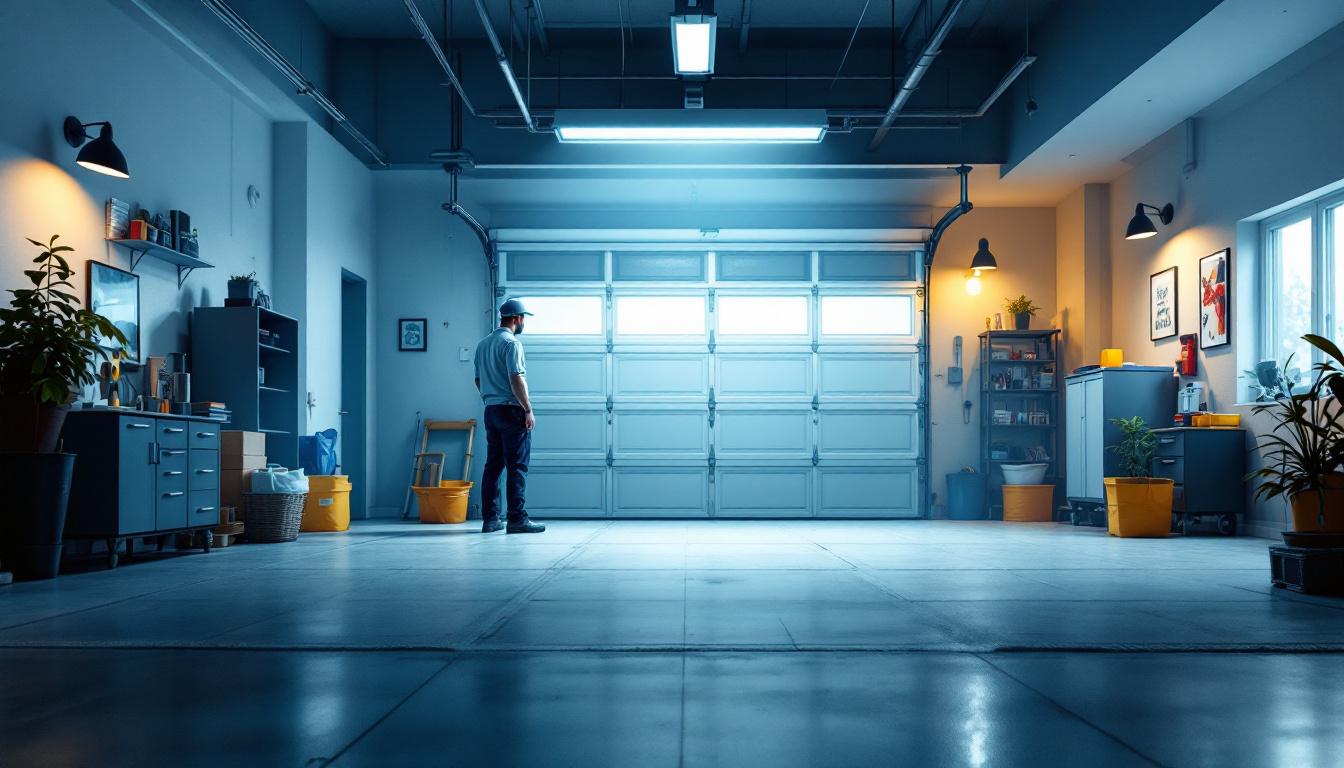
As the electrical landscape continues to evolve, lighting contractors find themselves at the forefront of innovation and safety. Understanding the intricacies of outlet electrical work is essential for ensuring both functionality and compliance with regulations. This article delves into the critical do’s and don’ts that lighting contractors should keep in mind when working with electrical outlets.
proper outlet installation is crucial for the safety and efficiency of any electrical system. A well-installed outlet not only ensures that electrical devices function correctly but also minimizes the risk of electrical fires and shock hazards. Lighting contractors must be well-versed in the standards and practices that govern outlet installation to provide quality service.
Familiarity with local and national electrical codes is non-negotiable for lighting contractors. These codes dictate how outlets should be installed, including their placement, wiring methods, and types of outlets used. Adhering to these regulations not only protects clients but also shields contractors from potential liability.
Regular updates to electrical codes mean that contractors must stay informed about any changes. This can involve attending workshops, reading industry publications, or joining professional organizations dedicated to electrical safety. Additionally, understanding the rationale behind these codes can help contractors make informed decisions during installations, ensuring that they not only comply with the law but also prioritize the safety and well-being of their clients.
Not all outlets are created equal. Different applications require specific types of outlets, such as GFCI (Ground Fault Circuit Interrupter) outlets for wet areas or AFCI (Arc Fault Circuit Interrupter) outlets for living spaces. Lighting contractors should assess the environment and the intended use of the outlet before making a selection.
Using the appropriate outlet type can significantly enhance safety and functionality. For instance, GFCI outlets are designed to prevent electrical shock in areas prone to moisture, while AFCI outlets protect against electrical fires caused by arcing faults. Furthermore, specialized outlets, such as USB charging ports, are becoming increasingly popular in modern homes, allowing for convenient charging of devices without the need for bulky adapters. By staying updated on the latest outlet technologies and trends, contractors can offer clients solutions that not only meet their immediate needs but also anticipate future demands.
Adhering to best practices can make a significant difference in the quality of work performed by lighting contractors. Here are some essential do’s to keep in mind.
Before beginning any electrical installation, it is imperative to conduct a comprehensive assessment of the site. This includes evaluating existing electrical systems, understanding the client’s needs, and identifying any potential hazards. A thorough assessment allows contractors to devise an effective plan that addresses all necessary aspects of the installation.
Gathering information about the layout and design of the space can also help in determining the optimal placement of outlets. This proactive approach ensures that the installation meets both aesthetic and functional requirements. Furthermore, engaging with clients during this assessment phase can foster a collaborative relationship, allowing contractors to clarify expectations and make informed recommendations based on the client’s vision. By taking the time to understand the unique characteristics of each project, contractors can tailor their solutions to enhance both the ambiance and utility of the space.
Investing in high-quality materials is essential for long-lasting and safe electrical installations. Cheap or substandard components can lead to frequent failures, which not only frustrate clients but can also pose safety risks. Lighting contractors should prioritize reputable brands and products that meet industry standards.
Additionally, using quality materials often results in fewer callbacks for repairs or replacements, ultimately enhancing the contractor’s reputation and customer satisfaction. Moreover, high-quality fixtures and wiring can improve the overall energy efficiency of the installation, which is increasingly important in today’s environmentally conscious market. By choosing energy-efficient lighting solutions, contractors can help clients reduce their energy bills and carbon footprint, making their services not only reliable but also sustainable.
Grounding is a critical aspect of electrical safety that should never be overlooked. proper grounding helps to prevent electrical shock and protects equipment from damage. Lighting contractors must ensure that all outlets are correctly grounded according to local codes and regulations.
In cases where grounding is not available, contractors should consider alternative solutions, such as using GFCI outlets, which provide a level of protection even in ungrounded situations. It’s also beneficial for contractors to educate clients about the importance of grounding and the potential risks associated with improper grounding. By providing this knowledge, contractors can empower clients to make informed decisions regarding their electrical systems, fostering a sense of trust and professionalism in the contractor-client relationship. Additionally, staying updated on the latest grounding techniques and technologies can further enhance the safety and reliability of installations, ensuring compliance with evolving electrical codes.
While understanding the do’s is essential, knowing what to avoid can be equally important. Here are some common pitfalls that lighting contractors should steer clear of.
Safety should always be the top priority for lighting contractors. Ignoring safety protocols can lead to severe accidents, injuries, or even fatalities. Contractors must adhere to all safety guidelines, including wearing appropriate personal protective equipment (PPE) and ensuring that the work area is safe.
Moreover, it is essential to communicate safety procedures to any assistants or team members on-site. A culture of safety not only protects individuals but also enhances the overall quality of work.
In the fast-paced world of electrical contracting, there may be pressure to complete jobs quickly. However, rushing through the installation process can lead to mistakes and oversights that compromise safety and functionality. Lighting contractors should take the necessary time to ensure that each installation is performed correctly.
Quality work often takes time, and clients will appreciate the attention to detail. Taking shortcuts may save time initially, but it can lead to costly repairs and damage in the long run.
Overloading circuits is a common mistake that can lead to overheating and electrical fires. Lighting contractors must be diligent in calculating the load on each circuit and ensuring that it does not exceed the recommended limits. This involves understanding the wattage of all connected devices and planning accordingly.
Using circuit breakers that are appropriately rated for the load can also help mitigate the risk of overload. Educating clients about the importance of not overloading circuits can further enhance safety and prevent potential hazards.
Once the installation is complete, ongoing maintenance becomes crucial for ensuring the longevity and safety of electrical outlets. Here are some best practices for outlet maintenance that lighting contractors should recommend to their clients.
Encouraging clients to conduct regular inspections of their electrical outlets can help identify potential issues before they escalate. This includes checking for signs of wear, such as discoloration, cracking, or loose connections. Lighting contractors can provide clients with a checklist to facilitate these inspections.
Additionally, contractors should offer to perform periodic maintenance checks as part of their services. This proactive approach can help build long-term relationships with clients and enhance their trust in the contractor’s expertise.
Education is a powerful tool in promoting electrical safety. Lighting contractors should take the time to inform clients about the proper use of outlets, including the importance of not using damaged cords or overloading outlets with multiple devices. Providing clients with clear guidelines can help prevent accidents and extend the life of the electrical system.
Offering resources, such as pamphlets or online materials, can further reinforce this education and serve as a reminder for clients to prioritize safety.
The electrical industry is continuously evolving, with new technologies emerging that can enhance the functionality and safety of outlets. Lighting contractors should stay informed about these trends to provide clients with the best options available.
Smart outlets are becoming increasingly popular, allowing users to control their devices remotely through smartphones or voice assistants. These outlets can offer features such as energy monitoring, scheduling, and integration with home automation systems. Lighting contractors should consider recommending smart outlets to clients looking to enhance their home’s efficiency and convenience.
As smart home technology advances, staying updated on the latest products and installation techniques will be essential for lighting contractors to remain competitive in the market.
With the rise of portable electronic devices, USB outlets have gained popularity for their convenience. These outlets eliminate the need for bulky adapters, allowing users to charge devices directly. Lighting contractors should consider incorporating USB outlets into their installations, especially in areas where charging devices is common, such as kitchens and living rooms.
Understanding the benefits and installation requirements of USB outlets can help contractors offer clients modern solutions that align with their needs.
For lighting contractors, mastering the do’s and don’ts of outlet electrical work is essential for delivering high-quality service and ensuring client satisfaction. By adhering to safety protocols, using quality materials, and staying informed about emerging technologies, contractors can enhance their expertise and reputation in the industry.
Ultimately, the goal is to create safe, functional, and aesthetically pleasing electrical systems that meet the needs of clients. By following these guidelines, lighting contractors can navigate the complexities of outlet electrical work with confidence and professionalism.
Ready to elevate your electrical work with the highest quality lighting products? At LumenWholesale, we provide lighting contractors like you with spec-grade lighting essentials at unbeatable wholesale prices. Say goodbye to local distributor markups and hello to our extensive selection that meets rigorous industry standards. Plus, with free shipping on bulk orders, you can stock up on premium lighting solutions without worrying about hidden fees. Don’t compromise on quality or value—choose LumenWholesale for the perfect blend of affordability and convenience. Discover our wholesale lighting at the best value today and light up your projects with confidence.

Discover the ultimate guide to the best LED garage lights tailored for lighting contractors.

Discover the ultimate guide to fluorescent tube types for lighting contractors.

Discover essential compliance guidelines for outdoor patio light strands that every lighting contractor should know.

Discover how wall LEDs are revolutionizing the lighting industry by boosting efficiency for contractors.